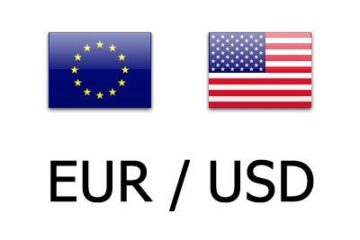The asset management giant is examining how to help its clients wanting to invest in crypto, confirms its CEO Larry Fink.
Cryptos are on the rise at the end of the first quarter.
Not only are prices rebounding, but institutional investors are taking a less wary stance towards digital currencies. BlackRock (BLK) – Get BlackRock, Inc. Report, one of the world’s largest asset managers, is considering how to serve its customers interested in crypto, CEO Larry Fink said in his traditional letter to shareholders on Thursday.
“As we see increasing interest from our clients, BlackRock is studying digital currencies, stablecoins and the underlying technologies to understand how they can help us serve our clients,” Fink wrote.
He did not provide further details.
But as we reported in February, one of the avenues that Larry Fink’s group is exploring is how to allow its clients to trade on its internal Aladdin platform, the sources said.
BlackRock, which had $10.01 trillion assets under management as of Dec. 31 from public pension schemes, endowments and sovereign wealth funds, developed Aladdin, a cutting-edge technology platform for managing investments and financial operations.
This platform is used by institutional investors, including asset managers, pension funds, insurers and corporate treasurers.
BlackRock Is Exposed to Bitcoin
If BlackRock does not yet have bitcoin or crypto in its balance sheet, the New York firm has exposure to bitcoin through its stake in the capital of the technology firm MicroStrategy (MSTR) – Get MicroStrategy Incorporated Class A Report, which holds bitcoins worth more than $5.379 billion as of time of writing according to Bitcoin Treasuries.
What’s also interesting about Fink’s new statement is that he talks about a growing interest in crypto from BlackRock’s clients. It’s a break from the past when the same Fink said in a CNBC interview last July that, “We see very little demand for those [crypto] types of things.”
In November he told CNBC he’s “not a student of bitcoin and where it’s going to go” but added “I do believe there is a huge role for a digitized currency.”
The Russian Invasion of Ukraine May Accelerate Crypto Adoption
Fink now seems convinced that we are moving towards a wide adoption of digital currencies. He argues that the Russian war in Ukraine is the factor that will push this acceleration.
“A less discussed aspect of the war is its potential impact on accelerating digital currencies,” the business man wrote. “The war will prompt countries to re-evaluate their currency dependencies.”
After Russia invaded Ukraine on Feb. 24, Western countries imposed financial sanctions on the Russian president Vladimir Putin, his entourage, individuals and Russian entities.
These sanctions caused the collapse of the ruble, the Russian currency. At the same time, we have observed large volumes of exchanges on cryptocurrency platforms in the Russian ruble and the Ukrainian hryvnia at their highest levels.
Authorities also warned that Russians could use crypto to circumvent sanctions.
A positive aspect has also emerged: many donations in the millions of dollars have been made in crypto to Ukrainians after the government opened official accounts that accept different digital currencies.
“Even before the war, several governments were looking to play a more active role in digital currencies and define the regulatory frameworks under which they operate,” Fink said. “The U.S. central bank, for example, recently launched a study to examine the potential implications of a US digital dollar,” he added referring to the executive order recently signed by Biden.
The Federal Reserve recently released a white paper outlining the pros and cons of a digital dollar.
Fink now believes that a global digital payment system, “thoughtfully designed, can enhance the settlement of international transactions while reducing the risk of money laundering and corruption.”
“Digital currencies can also help bring down costs of cross-border payments, for example when expatriate workers send earnings back to their families,” he said.


